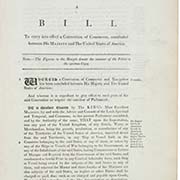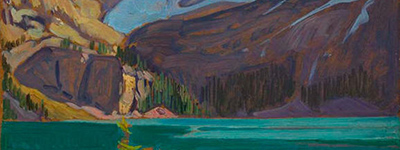CANADA HISTORY - DOCUMENTS NATIVES
1967 Chief Dan George (Teswahno) 1899 - Lament for Confederation
Analysis of the Document - (The Document follows below the Analysis)
Chief Dan George's 1967 speech, "Lament for Confederation," delivered at Canada's centennial celebrations, was a powerful and sorrowful reflection on the Indigenous experience since the formation of Canada in 1867. As a member of the Tsleil-Waututh Nation, Dan George used this platform to highlight the dispossession, broken promises, and marginalization faced by Indigenous peoples as a direct consequence of Canadian colonial policies.
At a moment intended to celebrate Canadian unity and progress, Dan George’s words stood in sharp contrast, evoking the loss of land, culture, and dignity that accompanied Confederation for Indigenous peoples. His speech was filled with both lamentation for the past and a call for recognition, respect, and reconciliation. He poignantly described how Indigenous nations had once been self-sufficient and powerful, but were now relegated to the margins of the country’s political and social fabric.
The speech was not only a critique of Canada's history but also a call to action, urging Canadians to embrace a future where Indigenous peoples would reclaim their rights and place within the nation. Chief Dan George's eloquence and emotional appeal made his address resonate across the country, shaking the foundations of how many non-Indigenous Canadians viewed their national history.
The implications of Chief Dan George’s Lament for Confederation were profound. His speech was one of the earliest mainstream expressions of Indigenous resistance to Canada's colonial history, marking a shift in public consciousness. It became a rallying cry for the Indigenous rights movement that gained momentum throughout the 1960s and 1970s, particularly as Indigenous leaders sought to assert their political, cultural, and land rights.
In the decades that followed, Lament for Confederation influenced discussions surrounding Indigenous sovereignty, land claims, and the need for reconciliation. It helped to set the stage for future legal battles, protests, and negotiations, as Indigenous peoples continued to fight for their inherent rights and self-determination. The speech is remembered today as a turning point in the relationship between Canada and its Indigenous peoples, offering both a critique of the past and a vision for a future where Indigenous voices would be heard, respected, and empowered.
Chief Dan George’s address continues to influence Canadian society today. It is a reminder of the need for reconciliation and an honest reckoning with the legacy of colonialism. As Canada continues to grapple with its past and present treatment of Indigenous peoples, the spirit of Dan George’s words—his hope for a future built on mutual respect and understanding—remains deeply relevant. His lament was not just a cry for justice but a challenge to all Canadians to reflect on the meaning of Confederation and the place of Indigenous peoples within the country.

July 1, 1967
Empire Stadium, Vancouver BC
How long have I known you, Oh Canada? A hundred years? Yes, a hundred years. And many many seelanum [lunar months] more. And today, when you celebrate your hundred years, Oh Canada, I am sad for all the Indian people throughout the land.
For I have known you when your forests were mine; when they gave me my meat and my clothing. I have known you in your streams and rivers where your fish flashed and danced in the sun, where the waters said come, come and eat of my abundance. I have known you in the freedom of your winds. And my spirit, like the winds, once roamed your good lands.
But in the long hundred years since the white man came, I have seen my freedom disappear like the salmon going mysteriously out to sea. The white man's strange customs which I could not understand pressed down upon me until I could no longer breathe.
When I fought to protect my land and my home, I was called a savage. When I neither understood nor welcomed this way of life, I was called lazy. When I tried to rule my people, I was stripped of my authority.
My nation was ignored in your history textbooks -- they were little more important in the history of Canada than the buffalo that ranged the plains. I was ridiculed in your plays and motion pictures, and when I drank your fire-water, I got drunk - very, very drunk. And I forgot.
Oh Canada, how can I celebrate with you this Centenary, this hundred years? Shall I thank you for the reserves that are left to me of my beautiful forests? For the canned fish of my rivers? For the loss of my pride and authority, even among my own people? For the lack of my will to fight back? No! I must forget what's past and gone.
Oh God in Heaven! Give me back the courage of the olden Chiefs. Let me wrestle with my surroundings. Let me again, as in the days of old, dominate my environment. Let me humbly accept this new culture and through it rise up and go on.
Oh God! Like the Thunderbird of old I shall rise again out of the sea; I shall grab the instruments of the white man's success -- his education, his skills, and with these new tools I shall build my race into the proudest segment of your society.
Before I follow the great Chiefs who have gone before us, Oh Canada, I shall see these things come to pass. I shall see our young braves and our chiefs sitting in the houses of law and government, ruling and being ruled by the knowledge and freedoms of our great land.
So shall we shatter the barriers of our isolation. So shall the next hundred years be the greatest in the proud history of our tribes and nations.
Cite Article : www.canadahistory.com/sections/documents
Source: NAC/ANC, Elgin-Grey Papers



